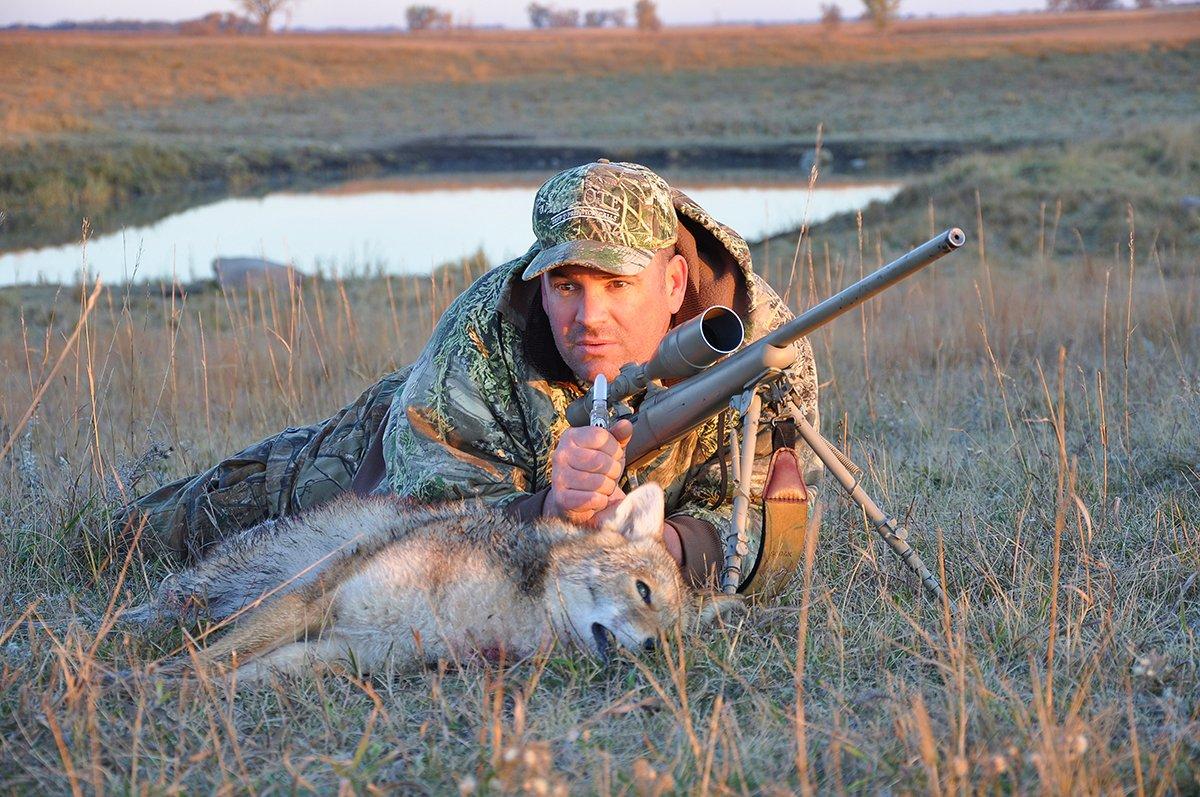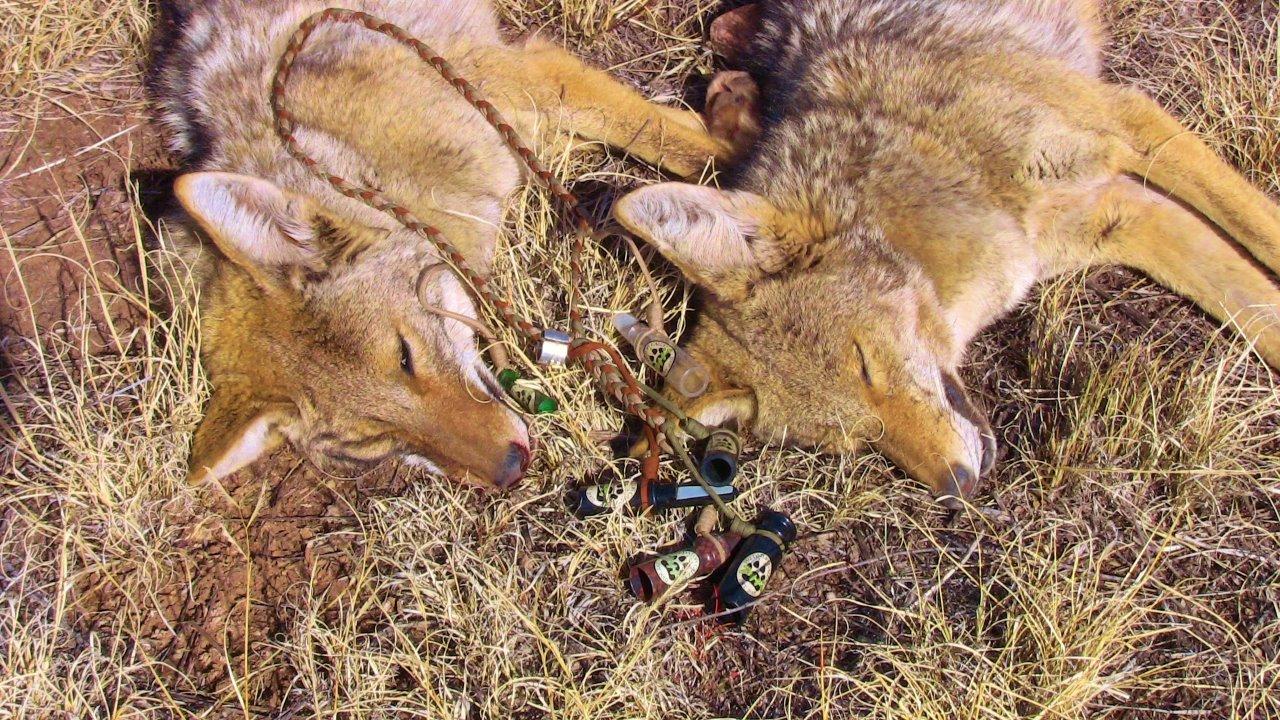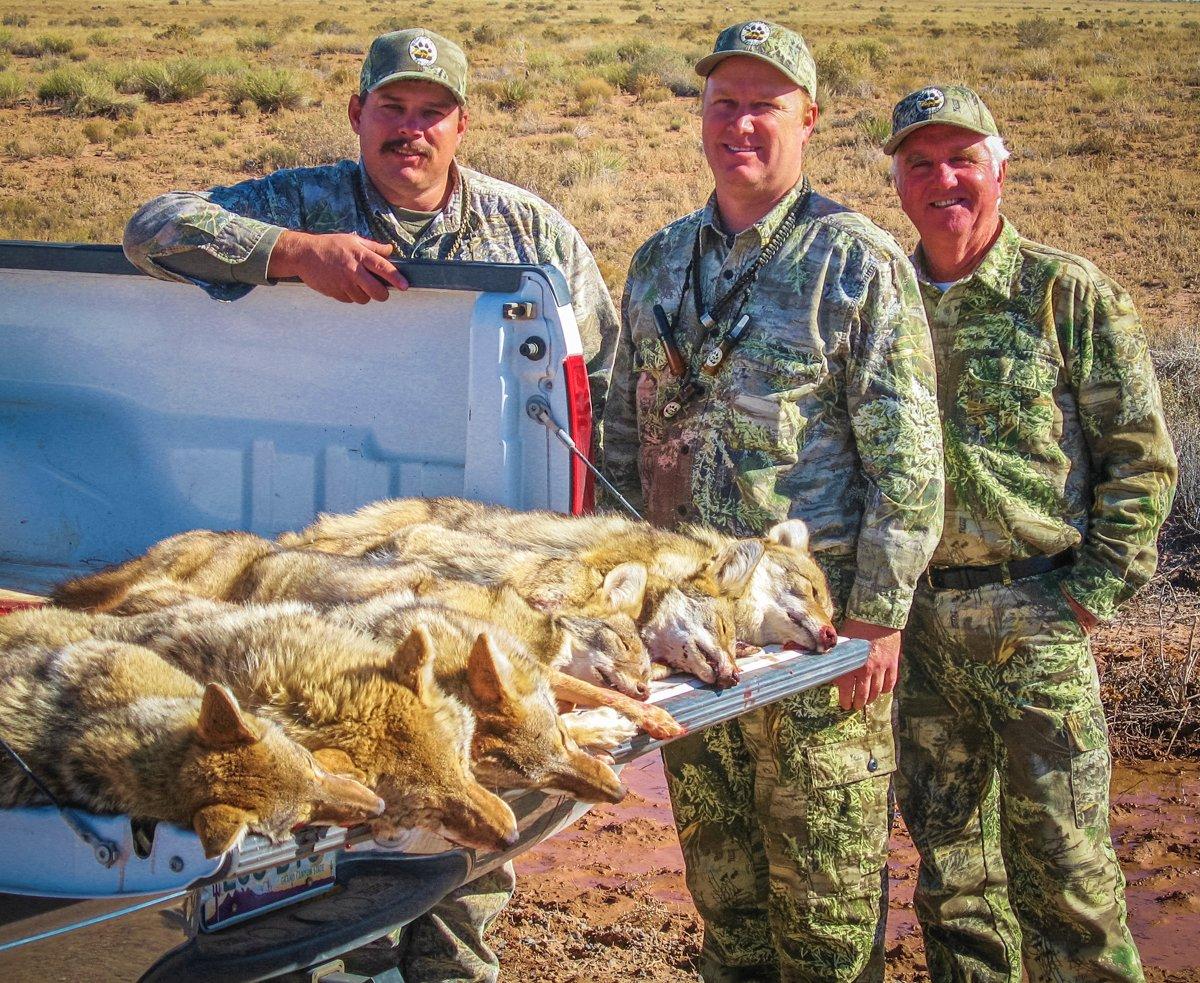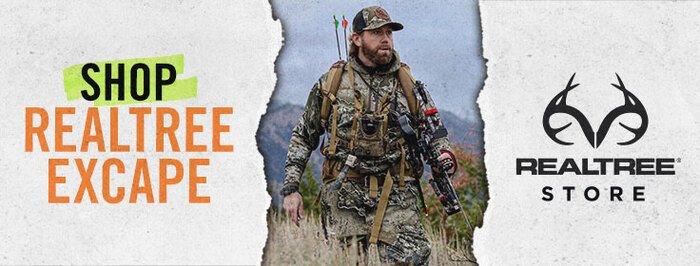Realtree pro staffer and coyote expert Mark Zepp says learning from the critters that get away will make you a better hunter
Mark Zepp doesn't remember all the predators that he's killed over decades of hunting, but he does remember every single one that got away, right down to the smallest detail. He says those have done the most to turn him into a successful predator hunter.
I have called thousands of coyotes, Zepp said. I certainly haven't killed that many, but I've called and studied and looked at them. And learned from them.
Sometimes past hunting partners will ask him if he remembers that coyote we called here or there and killed and I'm like, 'No. It's always the handful that got away you remember.'
The Red Fox Lesson: Load Your Gun
Zepp's very first attempt at predator hunting taught him a lesson that he follows to this day. He was a 13-year-old farm kid from Ohio, and he had just returned home from showing cattle at the National Western Stock Show in Denver, where he had purchased a Crit'R Call from Major Boddicker, a legend in the coyote-calling field. He set out to try the call, carrying a .17-caliber rifle. Back then, red fox were worth 70 or 80 bucks apiece, which would've been like $700 now, he said. I had put one shell in that rifle and I had about 10 in my pocket. Of course it would hold a half a dozen, but I just put one in there.
You can guess where this is going.
I was fumbling for those shells in my pocket, and that sucker just kind of sauntered off. I tell you I never went to a stand again for the rest of my life when I had only one shell in my gun.
He sat down and blew on his new call for a few minutes and here came a red fox, he said. I just absolutely could not believe it. He stopped out there about 70 yards and, of course, I missed him. He took a half-dozen steps and stopped again, but I didn't have any more shells in the gun. I was fumbling for those shells in my pocket, and that sucker just kind of sauntered off. I tell you I never went to a stand again for the rest of my life when I had only one shell in my gun.
It was a lesson learned early in his predator-hunting career.
I learned something on the very first stand I ever made, and it has haunted me and haunted me and haunted me, he said. Thirty years later, here I am still talking about it.
Hunters should believe a predator will come in and be ready when it does. I think you always have to be optimistic and ready for something to respond, he said. When people start in this sport and get involved in it, they really don't believe it'll work. Even guys who would come out to hunt with me back when I was hunting all over the country. A coyote would finally show up at a stand and they were so excited to just see one. They'd say, 'I can't believe one showed up' and I was like 'What do you think we're doing out here? You can't believe one showed up?'
There comes a time when calling has to turn into killing, he said. Something to remember is to stay very optimistic - and make sure you have enough shells in your gun, for sure.
Washington Coyote No. 1: Don't Get Cocky
Zepp was a dedicated predator hunter; living for a year and a half in his van, traveling and hunting from place to place. Nowadays, his Zepp's Predator Calls, DVDs and other products are available on his website.
One time in Washington, after knocking on doors, he got permission to hunt a large ranch, where he spent the day calling coyotes. I don't remember all the coyotes that I called and killed, but I sure remember the two that I didn't that I should have."
On the first one, Zepp missed what should have been a routine, easy shot for him. I just rushed the shot a little bit too much, he said. I didn't have a good set of shooting sticks, which I think are highly, highly important."
A set of sturdy shooting sticks is almost as important as your rifle, he said. You just have to be able to hold that thing steady and be comfortable with the shot.
But back to the hunt. I remember calling that rascal in. He was just walking in from 200 yards, taking his time, and I had probably too much time to sit and think, and I just let him keep coming. He got to about 80 yards, and I'd been thinking about it forever. I rushed a bad shot because I didn't have a good hold the way I was sitting. I missed that sucker and, unlike that red fox, he did not give me a second chance. I had plenty of bullets in my gun, but he went into warp drive and got behind cover quick."
Washington Coyote No. 2: Leave No Blind Spots
Later that same day, another lesson was learned.
Zepp had located some coyotes in a valley and set up above them to do some howling to bring them in. There was a rock ledge about 10 feet above him, to his right.
I remember when I sat down, I thought I probably should move a little bit so I could see that ledge, but I was comfortable and there was a good, nice view there. Boy, I could see a country mile, and I thought that's where those coyotes were anyway. I called for 5 or 6 minutes, and then I looked up and that coyote was just standing there on that ledge looking at me not 10 yards away to my right.
A right-handed shooter, Zepp was situated in such a manner that it was not a simple task to swing on the coyote.
I had to pivot the whole way around to get the shot and, boy, by the time I had moved my hind end 2 inches he was probably 200 yards out there, he said. I stood up and took a couple steps and he was nowhere to be seen.
Lesson learned, but it's a lesson that isn't always easy to teach.
Over the years, he's encountered similar situations while hunting with partners. I would always tell my partner, 'Now, you watch that ledge above me.' And they would look at me like You've got to be kidding me, you coyote hog you, because you know that rascal's going to be coming from this valley you can see down.'
But on several occasions five or 10 minutes into the calling sequence, Zepp's partner would kill the coyote that came in from above. "Sometimes they will climb and maneuver around to get to that point where they are looking down at you, rather than come from the direction you expect," Zepp said.
Zepp said he has learned a lot from predators that escaped, but those lessons have helped him be more successful on other hunts.
Those animals got away, but they were the demise of several hundred others over the years, I can promise you, he said. "Like anything else in life, you have to learn from your mistakes and not make those mistakes again. It doesn't matter if it's football, baseball, basketball, whatever game you're playing, you can't continue to make those same mistakes. It's no different from any other sport.
7 Reasons to Take a Kid Predator Hunting
More Realtree predator hunting. Follow us on Facebook.










